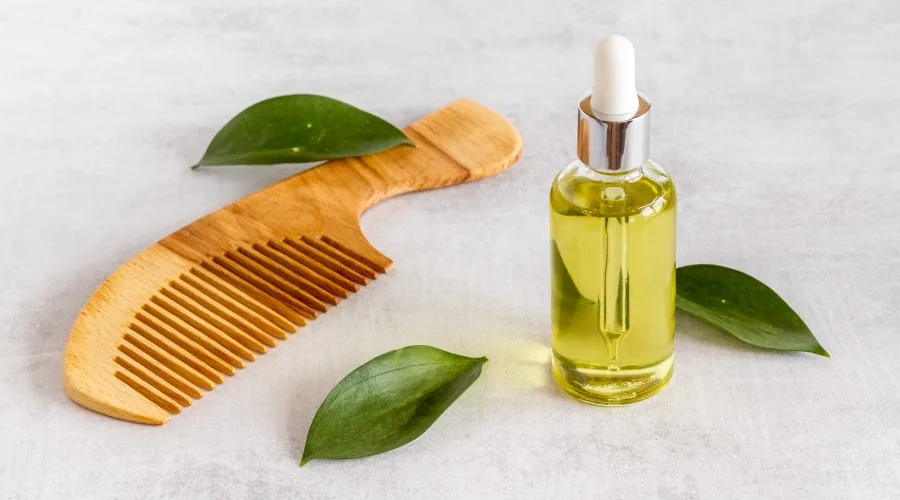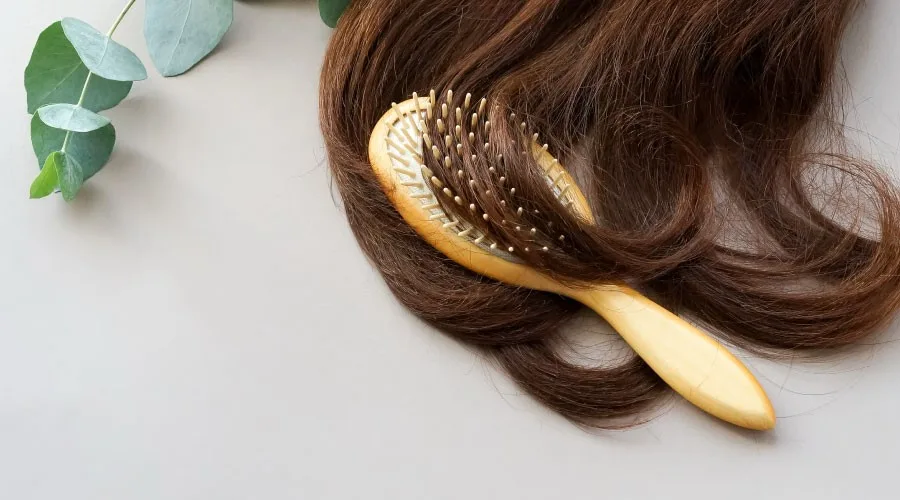Keeping your hair clean and moisturized is essential for maintaining its health, shine, and overall vitality. Harsh environmental factors, styling products, and daily activities can strip your hair of its natural oils, leading to dryness and damage. In this guide, we will explore effective and practical ways to ensure your hair stays clean and moisturized, promoting its overall well-being. Before applying any heat to your hair, make sure to use a quality heat protecting spray or serum. ISHRS – Physician Finder These products create a protective barrier, shielding your hair from the direct impact of high temperatures Drink plenty of water to keep your body and hair hydrated. Dehydration can lead to dry and brittle hair, so staying well-hydrated supports overall hair health.

Choose the Right Shampoo and Conditioner:
Selecting the appropriate shampoo and conditioner for your hair type is the first step towards cleanliness and moisture retention. If you have oily hair, opt for a clarifying shampoo to remove excess oil. For dry hair, choose a moisturizing shampoo and conditioner to replenish lost moisture. Color-treated hair requires special formulations to maintain vibrancy and hydration. Here are some tips to help you choose the perfect shampoo and conditioner for your hair type:
• Know Your Hair Type: Understanding your hair type is the first step in selecting the appropriate products. Is your hair oily, dry, normal, curly, straight, or color-treated? Each type requires specific formulations to address its unique needs.
• Read Labels: Take the time to read the labels on shampoo and conditioner bottles. Look for products that are sulfate-free and free of other harsh chemicals. Natural ingredients like aloe Vera, argan oil, and keratin can be beneficial for your hair.
• Hair Texture Matters: Different hair textures have different needs. For example, if you have fine hair, choose a lightweight, shampoo and conditioner. Those with thick or coarse hair may benefit from more hydrating and smoothing formulations.
• Experiment with Brands: Don’t be afraid to experiment with different brands to find the one that works best for your hair. Keep in mind that your hair’s needs may change with the seasons or other factor, so be open to trying new products.
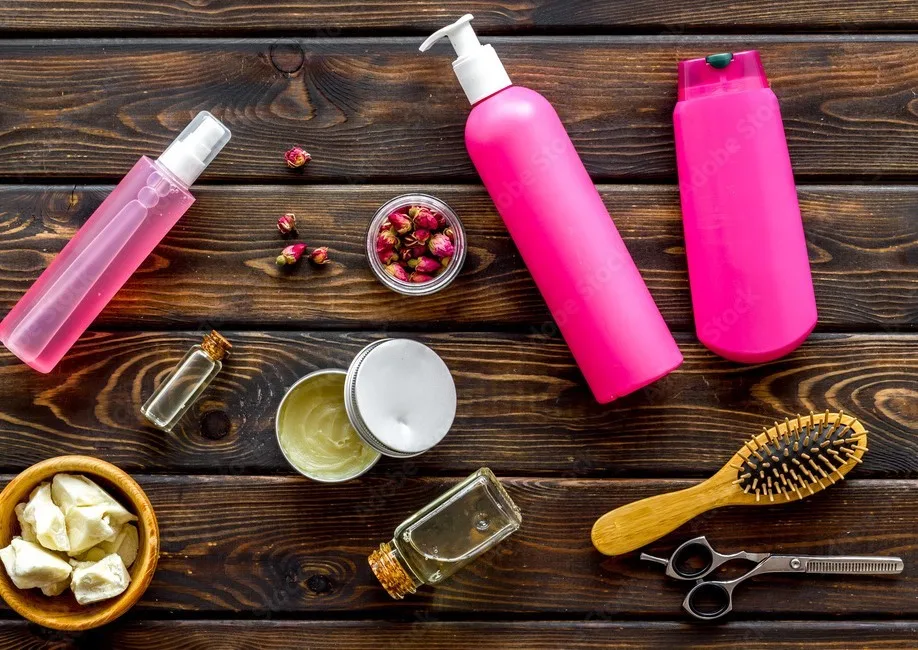
Regular Washing Routine:
Establishing a consistent washing routine is crucial for keeping your hair clean. While the frequency may vary based on your hair type, aim to wash your hair at least 2-3 times a week. Over washing can strip the hair of its natural oils, leading to dryness, while infrequent washing can result in an accumulation of dirt and oil. A regular washing hair routine tailored to your specific needs, you can maintain healthy, clean, and vibrant hair. Adjustments to the routine may be necessary based on changes in climate, lifestyle, or your hair’s condition.
Determine how often you should wash your hair based on your hair type and lifestyle. Generally, washing your hair 2-3 times a week is suitable for most people.
- Oily hair may require more frequent washing, while individuals with dry hair can go longer between washes.
- If you have an oily scalp, opt for a clarifying shampoo to remove excess oil and product residue.
- Consider applying a pre-wash treatment or oil to your hair and scalp before washing to nourish and protect your strands. This is particularly beneficial for those with dry or damaged hair.
- Apply a small amount of shampoo to your palms and lather it before massaging it into your scalp. Focus on the roots, where oil and product buildup are most concentrated.
- Rinse your hair with cool water to seal the hair cuticles and add shine.
- Ensure that no shampoo or conditioner residue remains on your scalp, as this can lead to irritation and dandruff.
- Whenever possible, allow your hair to air-dry to minimize heat damage. If you need to use a blow dryer, use it on a low or cool setting.
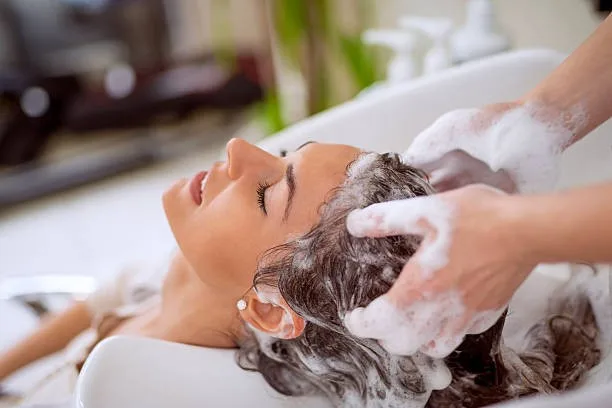
Use Lukewarm Water:
When washing your hair, opt for lukewarm water instead of hot water. Hot water can strip the hair of its natural oils and contribute to dryness. Lukewarm water helps open the hair cuticles, allowing for better penetration of shampoo and conditioner while preventing excessive moisture loss. Using lukewarm water for hair care is a widely recommended practice that offers numerous benefits to maintain healthy and vibrant hair. Unlike extremely hot water, which can strip the hair of its natural oils and cause damage, and cold water, which may not effectively remove oil and dirt, lukewarm water strikes a balance that promotes optimal hair health. Lukewarm water is its ability to gently cleanse the hair and scalp.
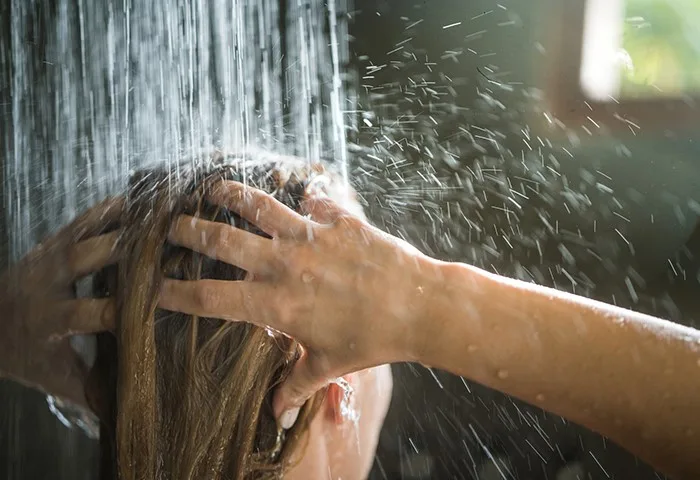
Save Your Hair from high temperature:
Excessive heat styling can contribute to dry and damaged hair. Minimize the use of heat styling tools, and when you do use them, apply a heat protestant spray to shield your hair from damage. Also, choose for lower heat settings to prevent excessive drying. Protecting your hair from heat damage is an essential aspect of maintaining healthy locks. National Institute of Arthritis and Musculoskeletal – Hair Growth and Care: These simple practices and incorporating them into your hair care routine; you can enjoy stylish looks without compromising the long-term health of your hair. Remember, prevention is necessary, and taking proactive steps to save your hair from heat damage will pay off in the long run. Before applying any heat to your hair, make sure to use a quality heat protecting spray or serum. These products create a protective barrier, shielding your hair from the direct impact of high temperatures. Apply the heat protecting evenly through your damp hair before using any styling tools to ensure comprehensive coverage.
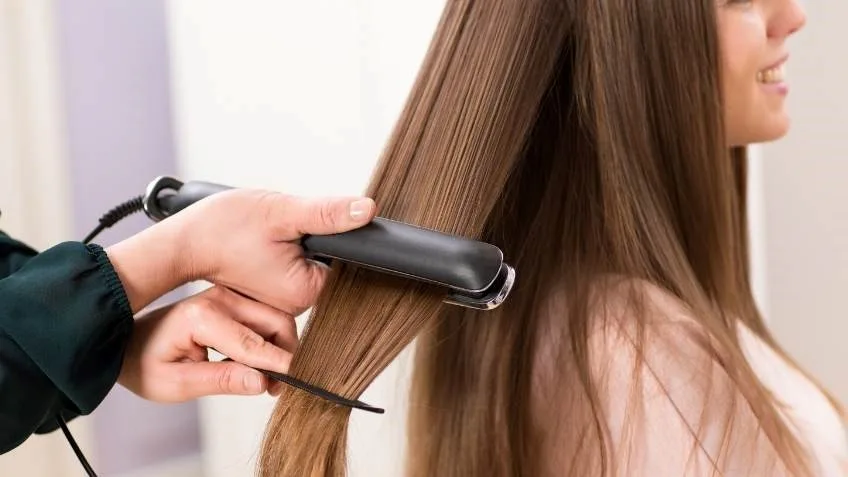
Scalp concern:
A healthy scalp is essential for maintaining clean and moisturized hair. Use a gentle exfoliating shampoo to remove any buildup of product or dead skin cells. Massage your scalp while shampooing to stimulate blood circulation, promoting a healthier scalp environment. Caring for your scalp is an integral part of maintaining overall hair health. By identifying and addressing common scalp concerns, one can not only alleviate discomfort but also enhance the appearance and vitality of their hair. Regular cleansing, appropriate product selection, and, when needed, seeking professional advice are key steps towards a healthier, happier scalp.
Types of Scalp:
Normal Scalp:
- Balanced oil production.
- Healthy hair follicles.
- Minimal flakiness or irritation.
Dry Scalp:
- Insufficient oil production.
- Itchy and flaky.
- Hair may appear dull and brittle.
Oily Scalp:
- Excessive oil production.
- Prone to greasiness.
- Can lead to clogged pores and dandruff.
Sensitive Scalp:
- Easily irritated.
- Prone to redness and itching.
- May react to certain hair care products.
Combination Scalp:
- Combination of dry and oily areas.
- Requires a balanced hair care routine.
Dandruff-Prone Scalp:
- Characterized by flaky skin on the scalp.
- Often caused by a yeast-like fungus.
- Can be accompanied by itching.
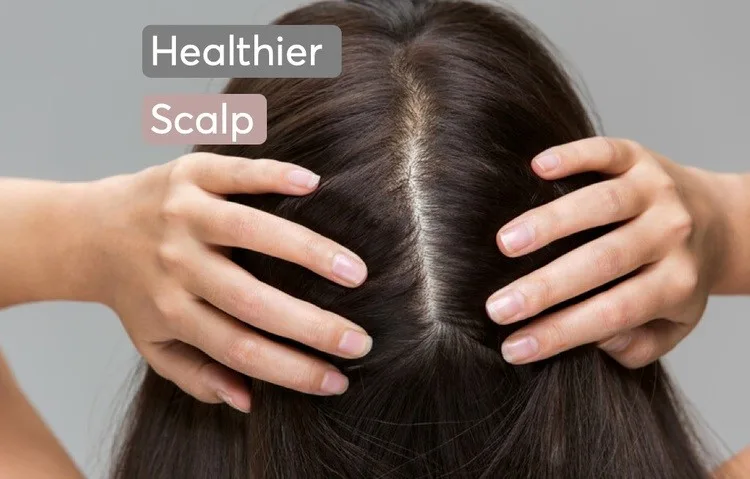
Hydrate from Within:
Proper hydration is not only essential for your overall health but also for the health of your hair. Caring for your scalp is an integral part of maintaining overall hair health. By identifying and addressing common scalp concerns, one can not only alleviate discomfort but also enhance the appearance and vitality of their hair. Regular cleansing, appropriate product selection, and, when needed, seeking professional advice are key steps towards a healthier, happier scalp. Drink an adequate amount of water daily to keep your body and hair hydrated from the inside out. A well-hydrated body promotes the production of natural oils that contribute to hair moisture.
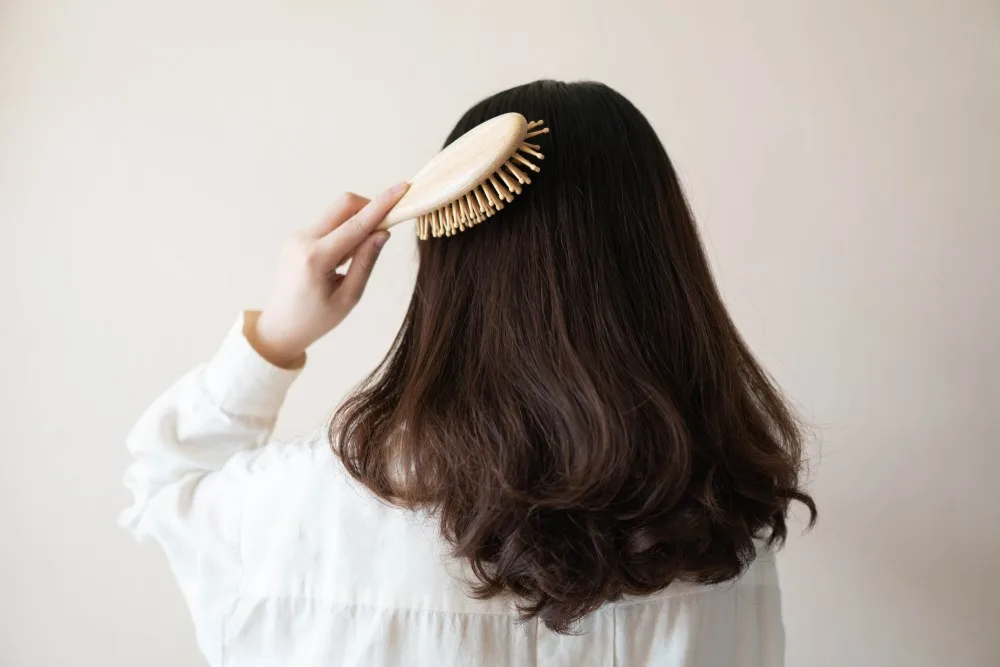
Natural Oils:
Natural oils have long been cherished for their beneficial properties, particularly when it comes to hair care. These oils, derived from plants and seeds, are rich in vitamins, minerals, and fatty acids that contribute to the overall health and beauty of hair. Here, we explore some of the popular natural oils known for their positive effects on hair. Incorporate natural oils into your hair care routine. Coconut oil, olive oil, and argan oil are excellent choices. Apply a small amount to the ends of your hair to add moisture and shine. You can also use these oils as pre-shampoo treatments for a deep conditioning boost.
- Hair oils are rich in essential nutrients that penetrate the scalp, promoting overall hair health by providing necessary nourishment to the hair follicles.
- The natural oils in hair oils help in retaining moisture, preventing dryness, and ensuring that hair remains well-hydrated, resulting in improved texture and shine.
- Regular application of hair oil helps in taming frizz and minimizing flyaway’s, making the hair more manageable and giving it a smoother appearance.
- Hair oils contain vitamins and minerals that strengthen the hair shaft, reducing the likelihood of breakage and split ends, thereby contributing to overall hair resilience.
- Massaging hair oil onto the scalp not only nourishes the hair follicles but also enhances blood circulation, promoting a healthier scalp environment conducive to hair growth.
